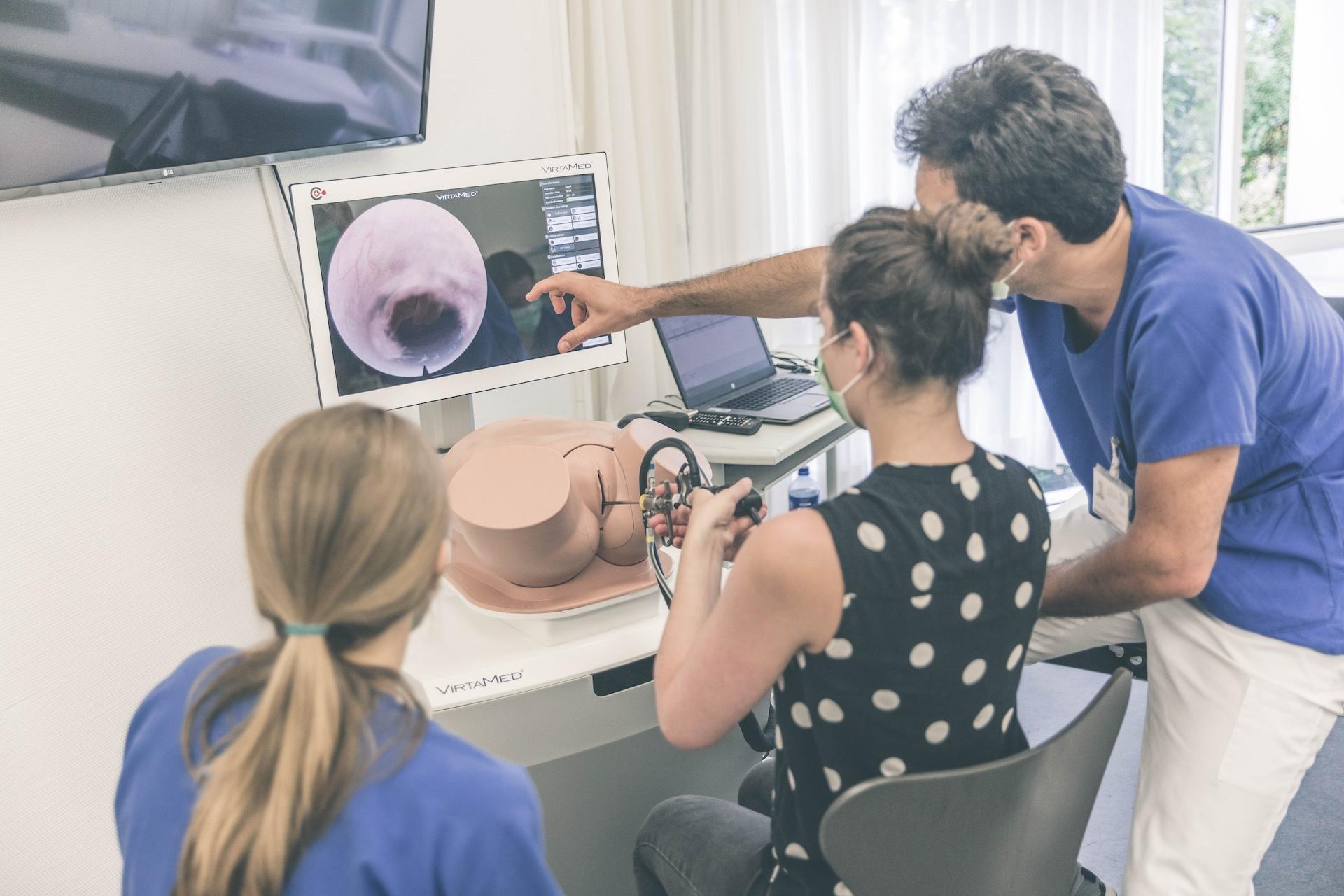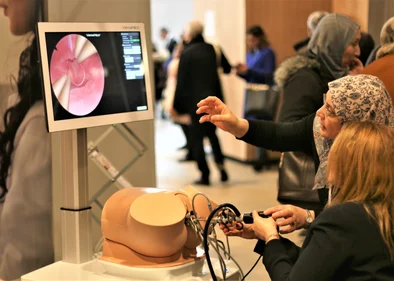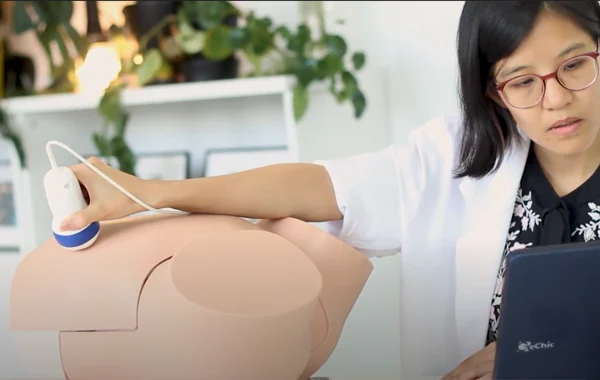
VirtaMed and EBCOG work on a position statement for simulation training
Obstetrics and genecology, like the vast majority of disciplines in the medical profession, has had to adapt to new ways of training given the changing clinical circumstances caused by the COVID-19 virus.
VirtaMedian Erin Zimmerman PhD was excited to work with the European Board & College of Obstetrics and Gynecology on a position statement about the use of simulation-based training for OB/GYN learning during the pandemic. This statement was published in the European Journal of Obstetrics & Gynecology and Reproductive Biology. EBCOG noted that trainees currently face increased limitation on patient contact and opportunities to travel for continuing and peer-to-peer education. Simulation training is one option that mitigates some of the limitations occurring during COVID-19, and it can and should be used to support high-quality training across geographic and socio-demographic lines to address existing discrepancies in women's healthcare between EU Member States.

Simulation training is known to enhance psychomotor skills and should be considered an important step in the transition from classroom learning to clinical practice. With an eye towards maintaining a high-standard of training across Europe, simulation-based training should be expanded to support the learning of a wide variety of skills, from basic tool handling to pathology identification and to the performance of different procedures.
EBCOG identified the benefits of simulation for training both during and after the pandemic as:
- Supporting social distancing. Online and remote trainings allow for everyone to learn from the safety of their homes. Physical simulators can also be placed in such a way that users can maintain social distancing.
- Mitigating the negative consequences of interrupted training caused by COVID-19.Research has shown that simulation training prevents skills decay and is effective in teaching new technical skills to novice learners.
- Overcome geographic limitations caused by COVID-19. Many people are unable or unwilling to travel far during the pandemic, but simulations - along with well-defined training standards- can support knowledge exchange without forcing physical contact.
In the 'Project for Achieving Consensus in Training (PACT)', published in 2018, EBCOG also identified simulation training as an important component of a well-rounded OB/GYN training curriculum in general. It can also be used to support the core skills described PACT including transvaginal and transabdominal ultrasound, diagnostic and therapeutic hysteroscopy and laparoscopy, open surgical training such as suturing, placement of IUD, and sub-specialty skills training (e.g. embryo transfer).
Simulation training results in more confident trainees who feel better prepared to enter the operating room. Additionally, expert mentors do no have to spend time teaching trainees basic skills because trainee will have already learned the basics on simulation. Instead, experts educators can now focus on passing on their more advance knowledge and experience to the next generation of surgeons.
